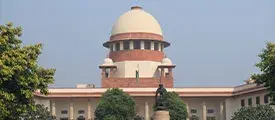Anti-Counterfeiting Laws in India
To counterfeit is to sell or market a non-genuine product as a genuine. Generally, such products are sold under the name of a famous manufacturer and an unwary consumer is misled to believe that the product originates from the same manufacturer. Counterfeiting is thus nothing but cheating a consumer and making him believe that he is buying the original branded product from the same source of manufacture as he imagines.
The disease of counterfeiting in India has extended to fields such as drugs and cosmetics, film and music industry, electronic and computer software, books and so on.
Impact of Counterfeiting
Counterfeiting today, thus, constitutes a major threat to the Intellectual Property Rights and has become a concern for individuals, companies as well as the State due to losses in revenue by way of taxes on goods. The various statutes governing Intellectual Property Rights recognize such activity as an offence and provide for stringent punishments. Please read further sections for more information.
Counterfeit problems are becoming borderless. They are not something one country can solve and prevent on its own. To eradicate such illegal acts, the following points are critical in addition to international cooperation,
- Global improvement of the judicial system and its enforcement regarding intellectual property (such as by treaty).
- More desirable conditions to bring in foreign economy and technology by easing licensing regulations and improving investment opportunities.
- Promotion of education and awareness activities regarding enforcement of IP systems.
Counterfeit problems, nevertheless, seem like an endless game which may be tackled only by the right holders who need to watch the market constantly so as to enforce his/ her right as soon as any illegal counterfeits are discovered. At the same time, it is also necessary to spread awareness among the consumers that buying an imitation is an illegal act








